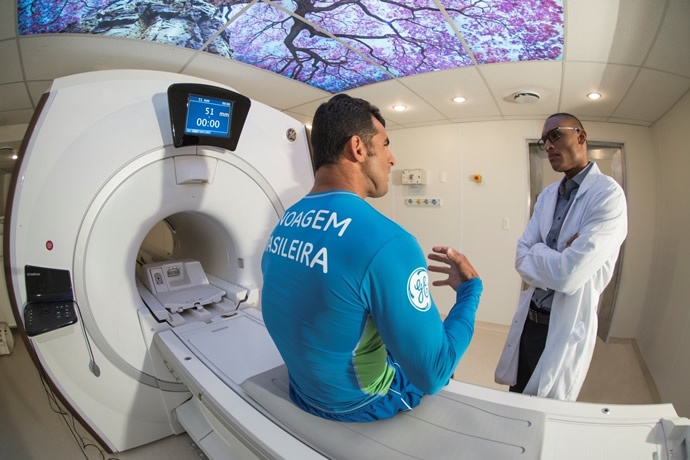How will cloud-based tech transform medical care?
Browsing through internet news in the recent months, one recurring theme has been the rise in medical technology and advancements that will propel the medical field to new, unimaginable heights, as Nicolette Emmino explains.
Just last month, personal aerial vehicle company, eHang, teamed-up with Lung Biotechnology with the goal of deploying 1,000 drones that would deliver organs for transplants. At the same time, researchers from University of Illinois at Urbana-Champaign and the University of Washington School of Medicine introduced a new thin electronic sensor capable of monitoring brain health after injury or surgery and then simply dissolving once they are no longer needed. These are just two recent examples of the role technology is playing in healthcare.
Though these are eye-catching examples, one company that has been making strides in everyday medical technology since the early 1900s, with the patenting of its ‘Coolidge’ hot cathode, high vacuum x-ray tube, is GE Healthcare. The company has been monumental in developing medical innovations ranging from its CT technology to ultrasound equipment.
GE Healthcare partners with a range of customers worldwide to develop sustainable solutions for their medical needs. It also contributes its technology to research programmes. One such programme is the UK-based project Dementias Platform UK, which is conducting the world’s largest study in dementia (over two million participants). For this project, GE has provided the programme with four of its PET/MRI scanners to make in-depth analysis possible.
Instruments like MRIs and CTs are still incredibly important to the medical field, however, when you look at how the healthcare industry is evolving, there’s no question that the hospital of the future is within reach.
High-tech healthcare
When you think of the hospital of the future, you may picture a set of robotic nurses and doctors, which is not a far-off concept considering Japan has already tested this idea due to a shortage in nursing staff and one of the longest life expectancies in the world. In fact, many robotics companies are toying with the idea of the ‘Robotic Nurse’, but they are currently only capable of helping patients physically move around or perform simple tasks like taking vital signs or delivering medicine. No fully autonomous robotic nurse exists right now however, mostly because creators have to determine a way to programme a machine with reliable ethics and sound decision making skills.
However, this is not what we mean when we say ‘hospital of the future’.
According to GE Healthcare, one important aspect of this futuristic hospital is Big Data. Many doctors are already making the switch to more digital practices, but the company believes that the technology will one day be common practice, allowing patients to take part in the management of their conditions as well.
“Medicine is becoming increasingly data focused, algorithmic and predictive,” said John Flannery, GE Healthcare President and CEO.

One example of this is that the company provides algorithms that are being designed to compare the ultrasound scans of expectant mothers to those of the wider population, in order to improve the diagnosis of genetic defects in unborn babies. This data would be hosted in the cloud and accessible to any clinician with a secure internet connection, which means doctors will have more information to make medical decisions. This increase in digital methods could enable better collaboration among healthcare providers too.
In keeping with this digital trend, GE launched the first industry specific cloud, GE Health Cloud, which provides solutions designed for the healthcare industry to deliver better outcomes.
The Health Cloud deals with the ‘nitty-gritty’ paperwork aspect of healthcare and lets doctors spend more time with patients. This cloud-based aspect of the medical field will be of importance in this year’s Rio 2016 Olympic Games, where GE Healthcare will make its imaging technology and software available to physicians from all of the competing countries.
The Olympics will welcome the first ever use of cloud-based medical records keeping, and GE Healthcare’s Centricity Practice Solutions (CPS) will collect medical information like scans, medications and allergies and then send them to the cloud instead of using paper records. By tracking and storing that data, medical teams will be able to analyse and develop new ways of improving athletes’ health and preventing injuries.
A shift to cloud-based health models could impact the industry by increasing transparency, giving patients access to a wealth of information at their fingertips, increasing understanding of disease and health, and converging clinical and financial relationships to heighten the understanding of healthcare and cost metrics.










